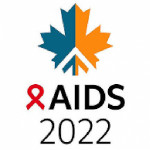Drug-resistance testing is recommended at the time of HIV infection diagnosis, as well as in all cases of treatment failure, reiterate new guidelines from the International AIDS Society-USA (IAS-USA), published in the July 15 issue of Clinical Infectious Diseases.
The IAS-USA guidelines panelists, under the direction of Martin Hirsch, MD, of Harvard Medical School, stress the importance of testing to help HIV-positive people determine if they’ve been infected with a drug-resistant strain of HIV-and which drugs they’re resistant to. For the most accurate results, they stress, testing should be conducted soon after the initial HIV diagnosis. Even if ARV treatment isn’t to be started until several months or years later, the results of drug-resistance testing can help guide treatment decisions when the time comes.
Once patients are on ARV treatment, if viral load fails to go undetectable or becomes detectable again after a period of being undetectable, the 2008 IAS-USA recommendations restate that drug-resistance testing may help determine the cause. For best results, the test should be conducted while the failing regimen is being used, or within four weeks of discontinuing treatment.
The availability of new drugs from various classes and improvements in available assays necessitate updated guidelines to help people living with HIV and their health care providers make informed decisions when confronted with drug-resistant virus. The IAS-USA annually convenes a panel of physicians and scientists with expertise in drug-resistant HIV, ARV therapy and patient care to review recently published data and presentations at scientific conferences and to provide updated recommendations.






Comments
Comments